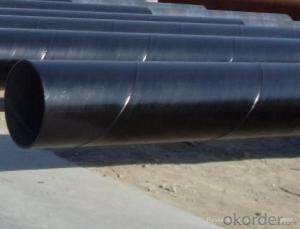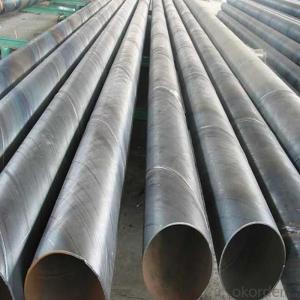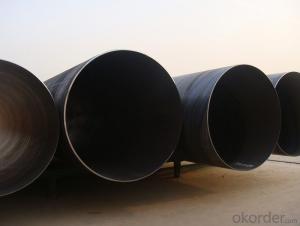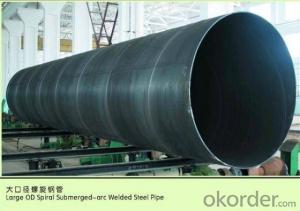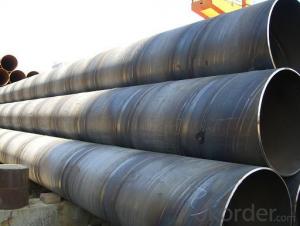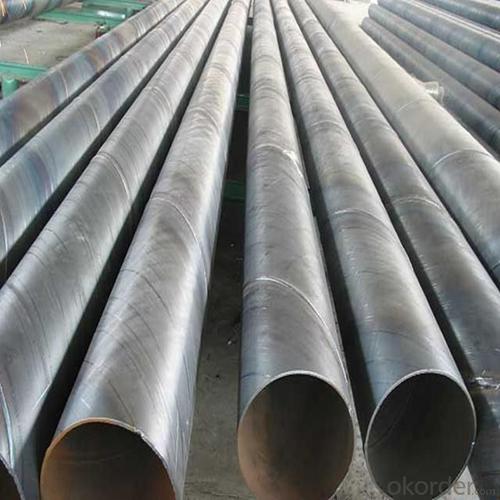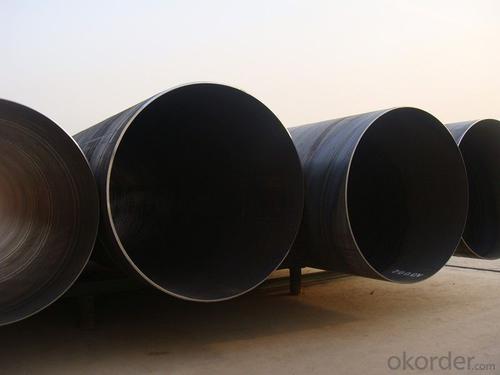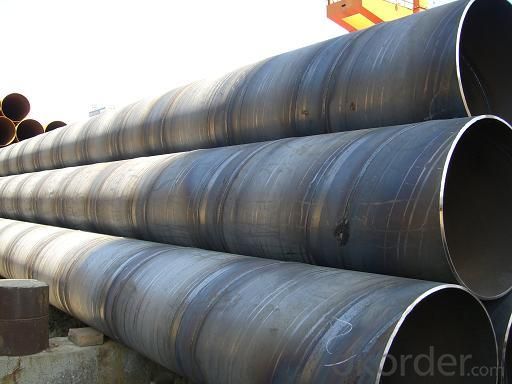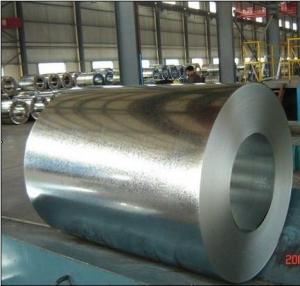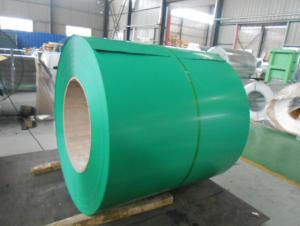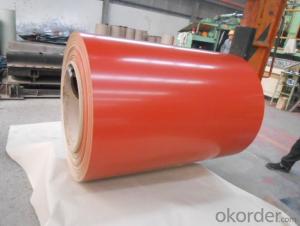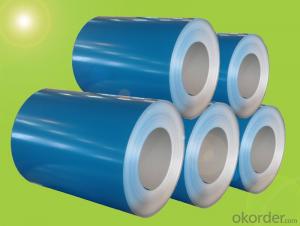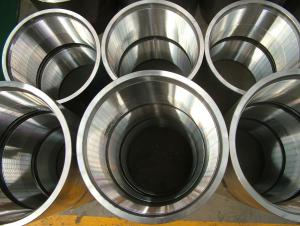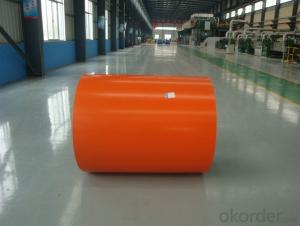SPIRAL CARBON STEEL PIPE 48''
- Loading Port:
- China Main Port
- Payment Terms:
- TT OR LC
- Min Order Qty:
- -
- Supply Capability:
- -
OKorder Service Pledge
OKorder Financial Service
You Might Also Like
Packaging & Delivery
Packaging Detail: | standard export packing or as customer's requirement |
Delivery Detail: | within 10 - 30 days |
Specifications
Spiral Welded Steel Pipes and Tubes
1.Material:Q195-Q235
2.Length:1-12m
3.WT:1.0-14mm
4.O.D.:20-273mm
Spiral Welded Steel Pipes and Tubes
Product Description:
1.Material : Q235,Q345,L245,L290,L360,L415,L450,L485,GrB,X42,46,X52,X56,X60,X65,X70,X80,X100
2,Standard: SY/T5037-2000,GB/T9711-2011,API Spec 5L PSL1/PSL2,ASTM A252\A53,ISO3183,DIN17172,EN10217,JIS G3457,AWWA C200,ASTM A139,ASTM A671,ASTM A672
3.Wall thickness: 3.0mm-30mm
4.Outer diameter: φ168mm-3020mm
5,Length: 5m-12m or as your requirement
6,Corrosion protection standard: DIN30670,DIN30671, AWWAC210, AWWA C203, SY/T0413-2002,SY/T0414-2002
7,Application: Oil, gas, natural gas, water pipe, thermal electricity pipe, steel structure engineering, etc
Q195-q345 Material Steel Pipe's Materials
Elements | Chemical Compsition% | Mechanical Property | ||||||
| C% | Mn% | S% | P% | Si% | Yield Point (Mpa) | Tensile Strength(Mpa) | Elongation |
Q195 | 0.06-0.12 | 0.25-0.50 | <0.050 | <0.045 | <0.030 | >195 | 315-430 | 32-33 |
Q215 | 0.09-0.15 | 0.25-0.55 | <0.05 | <0.045 | <0.030 | >215 | 335-450 | 26-31 |
Q235 | 0.12-0.20 | 0.30-0.70 | <0.045 | <0.045 | <0.030 | >235 | 375-500 | 24-26 |
Q345 | <0.20 | 1.0-1.6 | <0.040 | <0.040 | <0.55 | >345 | 470-630 | 21-22 |
- Q: How do steel pipes compare to other materials in terms of cost?
- Steel pipes are generally more cost-effective compared to other materials, as they offer a combination of durability, strength, and affordability. While initial costs may vary depending on the specific type and size of the pipe, steel pipes are often more economical in the long run due to their longevity and low maintenance requirements. Additionally, steel pipes are readily available and widely used in various industries, making them a cost-efficient choice for many applications.
- Q: How are steel pipes used in building foundations?
- Steel pipes are often used in building foundations to provide structural support and stability. They can be driven into the ground to act as piles, which help transfer the weight of the building to the underlying soil or bedrock. Steel pipes can also be used for deep foundation systems such as drilled shafts or caissons, which are used in areas with weak or unstable soil conditions. Additionally, steel pipes can be utilized for underground drainage and utility systems within the foundation structure.
- Q: Can steel pipes be used for hydropower systems?
- Yes, steel pipes can be used for hydropower systems. Steel pipes are commonly used in hydropower systems for various applications such as penstocks, which are used to transport water from a reservoir to a turbine. Steel pipes are preferred for their strength, durability, and ability to withstand high pressure and water flow. They are also resistant to corrosion, making them suitable for long-term use in hydropower systems. Additionally, steel pipes can be easily welded or joined, allowing for flexibility in system design and installation. Overall, steel pipes are a reliable and widely used choice for hydropower systems.
- Q: What are the different types of steel pipe coatings for marine applications?
- There are several types of steel pipe coatings commonly used for marine applications, including epoxy coatings, polyurethane coatings, and fusion bonded epoxy (FBE) coatings. These coatings are designed to protect the steel pipe from corrosion and provide resistance to marine environments. Epoxy coatings are known for their excellent adhesion and chemical resistance, while polyurethane coatings offer enhanced abrasion resistance. FBE coatings are highly durable and provide excellent corrosion protection. The choice of coating depends on the specific requirements of the marine application and the level of protection needed.
- Q: What are the safety considerations when working with steel pipes?
- There are several crucial safety considerations to bear in mind when working with steel pipes. To begin with, it is imperative to wear the appropriate personal protective equipment (PPE). This includes safety glasses or goggles to shield the eyes from debris or sparks, gloves to protect the hands from sharp edges or hot surfaces, and steel-toed boots to safeguard the feet from falling objects or heavy equipment. Additionally, it is advisable to wear a hard hat to shield the head from potential falling objects or hazards overhead. Moreover, one must be mindful of the weight and size of the steel pipes. Handling heavy pipes can strain the back and muscles, so it is essential to utilize proper lifting techniques and seek assistance when necessary. The use of lifting equipment, such as cranes or forklifts, can also help prevent injuries associated with heavy lifting. Another safety consideration is the risk of cuts or punctures. Steel pipes may have sharp edges or burrs, so it is important to handle them with care and wear suitable gloves to minimize the risk of injury. It is also recommended to inspect pipes for any defects or sharp edges before working with them. Furthermore, working with steel pipes may involve welding or cutting, which can generate sparks, heat, and fumes. It is vital to work in a well-ventilated area or employ proper ventilation equipment to ensure the elimination of harmful gases or fumes. Fire safety precautions, such as having fire extinguishers nearby and adhering to proper procedures for hot work, should also be taken. Lastly, one must be aware of potential hazards associated with working at heights or in confined spaces. When working on elevated platforms or scaffolding, fall protection measures, like safety harnesses or guardrails, should be in place. In confined spaces, proper ventilation and monitoring for hazardous gases are essential to prevent asphyxiation or exposure to toxic substances. By adhering to these safety considerations and following proper procedures, the risk of accidents or injuries when working with steel pipes can be significantly reduced.
- Q: Can steel pipes be used for underground sprinkler systems?
- Yes, steel pipes can be used for underground sprinkler systems. Steel pipes are known for their durability and strength, making them a suitable choice for underground applications. They are resistant to corrosion and can withstand high pressure and temperature, making them suitable for delivering water to sprinkler heads. However, it is important to note that steel pipes may require additional coatings or protective measures to prevent rusting and corrosion over time. Additionally, steel pipes may be more expensive than other materials such as PVC or polyethylene, so the cost factor should be considered as well. Overall, steel pipes can be a viable option for underground sprinkler systems, particularly in areas with harsher environmental conditions.
- Q: Can steel pipes be used for desalination plants?
- Yes, steel pipes can be used for desalination plants. Steel is often chosen for its high strength, durability, and resistance to corrosion, making it suitable for carrying and transporting the highly saline water used in desalination processes. Additionally, steel pipes can handle high pressure, ensuring efficient water flow throughout the plant.
- Q: How do steel pipes compare to other pipe materials like PVC or copper?
- Steel pipes have several advantages over other pipe materials like PVC or copper. Firstly, steel pipes are incredibly strong and durable, making them suitable for high-pressure applications and long-term use. They have a higher resistance to cracking or breaking, which is especially beneficial in demanding environments. Secondly, steel pipes have excellent heat resistance, making them ideal for transporting hot fluids. On the other hand, PVC pipes are more lightweight, cost-effective, and easy to install, making them suitable for non-pressure applications. Copper pipes are known for their corrosion resistance and ability to handle high temperatures, but they are typically more expensive. Overall, the choice between steel, PVC, or copper pipes depends on the specific requirements of the application, considering factors like pressure, temperature, cost, and ease of installation.
- Q: How do you calculate the thermal expansion of steel pipes?
- To calculate the thermal expansion of steel pipes, you need to use the coefficient of thermal expansion (CTE) for steel. The CTE is a measure of how much a material expands or contracts with changes in temperature. For steel, the average value of the CTE is typically around 12 x 10^-6 per degree Celsius (12 μm/m°C). To calculate the thermal expansion of a steel pipe, you need to know the initial length of the pipe (L0), the change in temperature (ΔT), and the coefficient of thermal expansion (CTE) for steel. The formula to calculate the thermal expansion is as follows: ΔL = L0 * CTE * ΔT Where: ΔL is the change in length of the steel pipe L0 is the initial length of the steel pipe CTE is the coefficient of thermal expansion for steel ΔT is the change in temperature For example, let's say you have a steel pipe with an initial length of 2 meters (L0), and the temperature increases by 50 degrees Celsius (ΔT). The CTE for steel is 12 x 10^-6 per degree Celsius. ΔL = 2m * 12 x 10^-6/°C * 50°C ΔL = 0.00024m/m°C * 50°C ΔL = 0.012m Therefore, the steel pipe would expand by 0.012 meters or 12 millimeters when the temperature increases by 50 degrees Celsius. It's important to note that this calculation assumes a linear expansion, which is valid for small changes in temperature. However, for larger temperature differences or more complex pipe systems, a more detailed analysis may be required to account for factors such as the pipe's material properties, geometry, and thermal boundary conditions.
- Q: Can steel pipes be used for air conditioning systems?
- Yes, steel pipes can be used for air conditioning systems. Steel pipes are commonly used in HVAC systems, including air conditioning, due to their strength, durability, and resistance to corrosion. They are used to transport refrigerant and provide structural support for the system.
Send your message to us
SPIRAL CARBON STEEL PIPE 48''
- Loading Port:
- China Main Port
- Payment Terms:
- TT OR LC
- Min Order Qty:
- -
- Supply Capability:
- -
OKorder Service Pledge
OKorder Financial Service
Similar products
Hot products
Hot Searches
Related keywords
